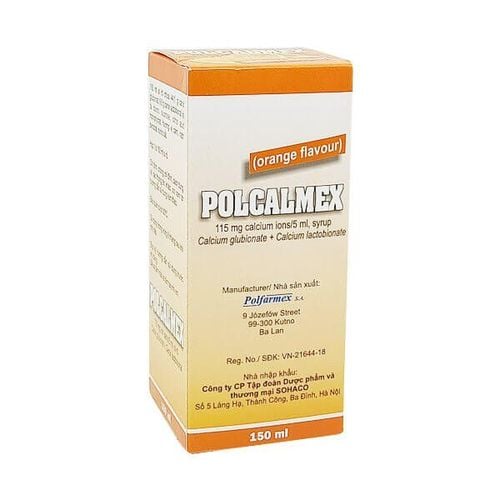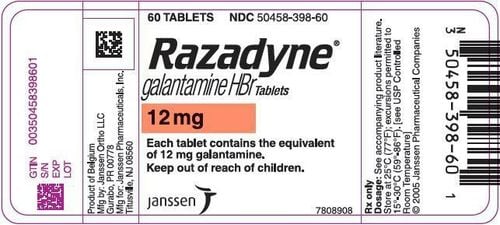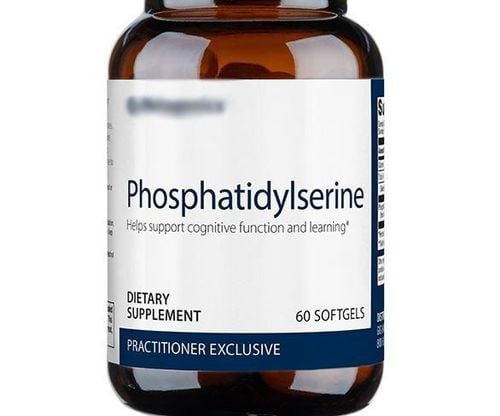This is an automatically translated article.
Omega 3 fatty acids are now recognized as an important nutrient for the prevention of pathological conditions associated with the aging process. Omega supplements for the elderly will help them improve a number of health conditions such as brain decline, live healthier and better mood.1. What are omega 3 fatty acids?
Omega-3s are nutrients you get from food (or supplements) that help build and maintain a healthy body. They are key to the structure of every cell wall you have. They are also an energy source that helps keep your heart, lungs, blood vessels, and immune system working as they should.
Two important substances, docosahexaenoic acid (DHA) and eicosapentaenoic acid (EPA) are both mainly found in certain types of fish. ALA (alpha-linolenic acid), another omega-3 fatty acid found in plant sources like nuts and seeds.
DHA is especially high in cells of the retina (eyes), brain and sperm. Not only do your body need these fatty acids to function, they also offer a number of major health benefits such as:
Lowering blood fats (triglycerides): Omega 3 fatty acids can reduce elevated triglyceride levels high. Prevents Rheumatoid Arthritis: Fish oil supplements (EPA + DHA) may limit stiffness and joint pain. Omega-3 supplements also increase the effectiveness of anti-inflammatory drugs. Fights depression: Some researchers have found that cultures that eat foods high in omega-3s have lower levels of depression. Baby development: DHA is important for visual and neurological development in infants. Asthma relief: A diet rich in omega-3s reduces inflammation, a key component in asthma. But more research is needed to show whether fish oil supplements improve lung function or cut the amount of medication a person needs to control the condition. Attention Deficit Hyperactivity Disorder (ADHD): Some research shows that fish oil can reduce symptoms of ADHD in some children and improve their mental skills. However, omega-3 supplements should not be used as a primary treatment. Alzheimer's disease and dementia: Some studies suggest that omega 3 fatty acids may help protect against Alzheimer's disease and dementia, and have a positive effect on progressive memory loss. related to aging. But that is not certain yet.

Axit béo omega 3 giúp giảm chứng sa sút trí tuệ
Increasing omega-3 intake, especially long-chain n-3 PUFAs, could be one of the strategies to prevent or reduce morbidity in the elderly. There is growing evidence that these fatty acids appear to be neuroprotective. Overall, longitudinal studies were mostly positive, showing a protective effect against subsequent cognitive decline.
2.1. Omega-3s and Better Survival One of the recent studies found that having high levels of the omega-3 fatty acid EPA in the blood, which is found mainly in fish but not in plants, can help prolong life. long lifespan.
The study took place in Norway. Researchers measured blood levels of omega 3 fatty acids in 254 frail elderly people (mean age: 82) admitted to a Norwegian hospital. Over the next 3 years, patients with high blood EPA levels were less likely to die than patients with low EPA levels.
That finding may stem from the EPA's heart-healthy benefits, since heart disease is responsible for most of the patient deaths.
2.2. Less memory loss with Omega for the elderly In the 2nd study, people with high blood levels of EPA were less likely to develop dementia. The study comes from France, where researchers tracked new cases of dementia over four years in about 1,200 people aged 65 and over.
When the study started, the participants provided blood samples. During the study, people with higher blood levels of EPA were less likely to develop dementia. People who ate fish regularly were less likely to develop dementia during the study.
Outcomes were independent of other factors including age, depression, education, diabetes, and mutations in the ApoE4 gene (which makes Alzheimer's more likely).
2.3. Better mood with omega for the elderly The 3rd study, conducted in the Netherlands, showed no improvement in mood with omega supplements in healthy elderly people.
The study included 302 people 65 years of age and older without depression. For 26 weeks, they took either a high dose of EPA and DHA (another omega-3 fatty acid found in fish but not in plants), a lower dose of EPA and DHA, or a placebo.
Before and after scores of depression surveys show no improvement in mood with omega-3 supplements. But that could be because the participants weren't depressed in the first place.

Axit béo omega 3 giúp tâm trạng người già tốt hơn
Anchovies; Green fish; Herring; Mackerel; Marlin; Matte orange; Salmon ; Pilchard; Sturgeon; Lake trout; Tuna. While it's a good idea to eat more fatty fish, certain types of fish are likely to contain higher levels of mercury, polychlorinated biphenyls (PCBs), or other toxins. These include mackerel, wild swordfish, puffer fish and sharks. Additional types of fish that are high in mercury are marlin, orange shark, and bigeye tuna.
Other good food sources include:
Walnuts; Flaxseed and linseed oil; Canola oil; Soybean oil; Chia seeds. While foods containing omega-3 fatty acids have health benefits, some oils and nuts can be high in calories. So eat them in moderation.

Các loại cá bép chứa nguồn axit béo omega 3 dồi dào
3.2. Supplement your Omega 3 with a Fish Oil supplement that has both EPA and DHA. Algae oil has DHA and can be a good choice for people who don't eat fish. Talk to your doctor about taking a supplement first. They may have specific recommendations or warnings, depending on your health and other medications you take. Omega-3 prescriptions are also available. Epanova, Lovaza, Omtryg and Vascepa contain DHA/EPA and are recommended for adults with triglycerides of 500 mg/dL or more. Unlike fish oil supplements, these medications are FDA approved and monitored for quality and safety for specific use. Some people with heart disease may be advised to take 1 gram (1,000 milligrams) Daily combination of DHA/EPA from fish oil. People with other health conditions can take doses up to 4 grams a day. But if you have cardiovascular (heart and blood vessel) disease and are high in triglycerides, omega-3 supplements may increase your risk of atrial fibrillation. Atrial fibrillation is the most common type of heart rhythm error (arrhythmia). That's why it's so important to check with your doctor before taking omega-3 supplements, especially if you're taking these medications. other medicines or you have a health problem. The most common side effects from fish oil are indigestion and bloating. Omega-3 supplements (DHA/EPA) may make the chance of bleeding higher. If you have a bleeding condition or take medicines that can increase bleeding such as Apixaban (Eliquis), Betrixaban (Bevy Sea), Clopidogrel (Plavix), Prasugrel (Effient), rivaroxaban (Xarelto), ticagrelor (Brilinta), Warfarin (Coumadin) and some NSAIDs THEN talk to your doctor before taking any omega-3 supplements.
In conclusion, omega supplementation for the elderly is one of the strategies to prevent or reduce the incidence of diseases in the elderly. There is growing evidence that these fatty acids appear to be neuroprotective. Overall, longitudinal studies were mostly positive, showing a protective effect against subsequent cognitive decline.
Please dial HOTLINE for more information or register for an appointment HERE. Download MyVinmec app to make appointments faster and to manage your bookings easily.
References: ncbi.nlm.nih.gov, webmd.com, medicalnewstoday.com













